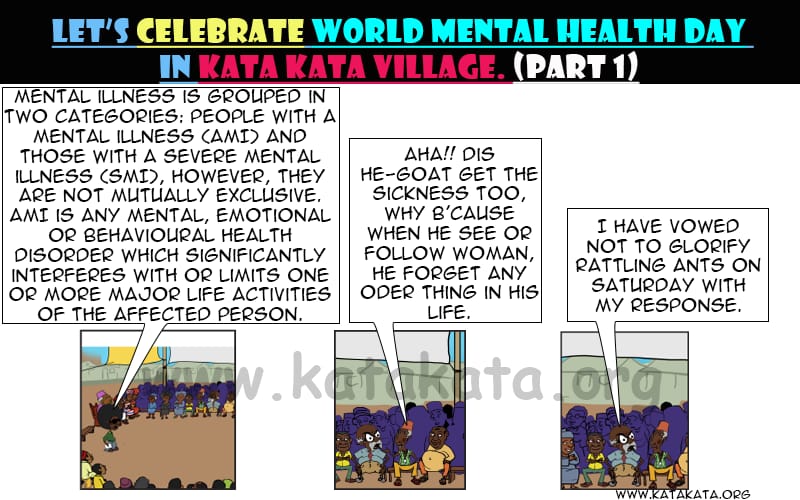Celebrating World Mental Health Day.
The adage “a healthy mind is a productive mind” makes resounding sense
if one relates it to the worrisome rate of mental health challenges facing the
world today.
Sadly, we are casually sitting on a keg of gunpowder waiting to explode;
we hardly do much to address the danger associated with mental health, which is
systematically destroying people’s lives.
As we celebrate World Mental Health Day on October 10, we must create
awareness of the sickness through global health education and advocate against
social stigmatisation of mental health victims.
Globally, 284 million people suffer from anxiety, while more than 43
million Americans alone have mental health. Depression affects 264 million
people worldwide. Those are not encouraging figures. Alcohol dependence affects
107 million victims, and 71 million suffer from substance use disorders.
The coronavirus pandemic did not spare the already devastating mental
health condition. The unexpected epidemic, which forcefully kept many indoors
and shut down human interactions and activities globally, undeniably impacted
health care and social relations. Since the start of the epidemic, rates of
anxiety, depression, and drug use disorder have increased, and the first year
of the COVID-19 pandemic witnessed an enormous 25% rise in fear and sadness.
With lockdown in place and physical interaction significantly minimised during
the coronavirus pandemic, loneliness became a norm. At the same time, fear of
infection and death, financial and job losses, and trauma over the demise of
loved ones all caused devastating mental stress and depression. Faced with all
the health challenges, most victims, including many exhausted health workers
who experienced thousands of deaths daily, contemplated suicide as a solution
to their disastrous mental health condition.
We must join hands together to tackle the mental health epidemic. Apart
from providing the victims with necessary medical attention, we must encourage
them to engage in self-care, which requires the victims to take steps to make
many changes in their lives. These self-care measures include keeping in touch
with friends and family, having a regular sleep routine, avoiding or minimising
drugs and alcohol intakes, exercising regularly, changing one’s diet to
healthier options, engaging in the activities one used to enjoy, discussing
one’s health problems and feelings with someone one trusts, seeking help from a
healthcare professional, amongst others.
Meeting and interacting with other mental health victims makes one
realise they are not alone in their problems, as others face similar
challenges. Therefore, signing up for a group therapy workshop nearby would not
be a bad idea.
We must take those measures to Kata Kata Village before it is too late.
Please go with me.

